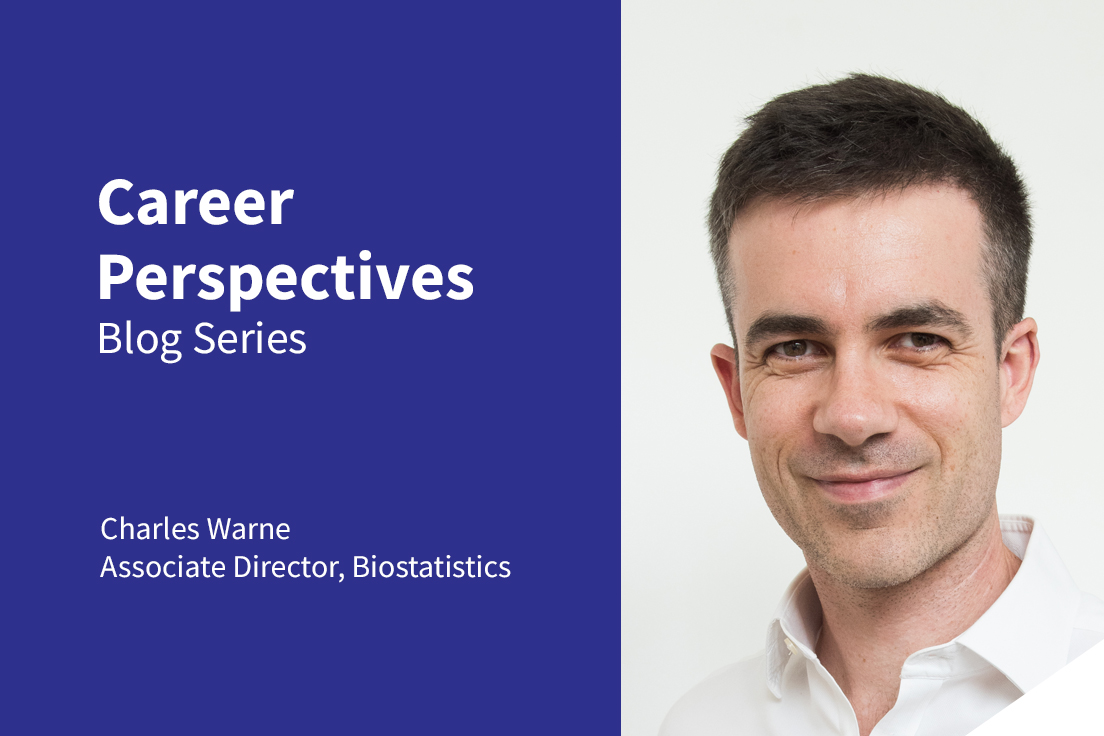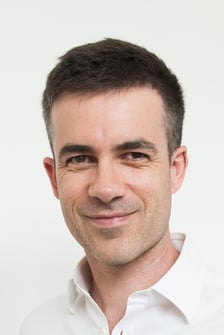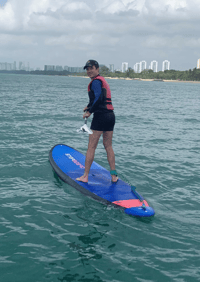Career Perspectives: Interview with Charles Warne, Associate Director of Biostatistics

 In this edition of the Career Perspectives series, I interview Charles Warne, Associate Director of Biostatistics at Cytel. Charles is originally from Australia where he completed his university education and is now based in Singapore. He has been working as a biostatistician in the pharmaceutical industry since 2011, and prior to that he worked as a biostatistician/epidemiologist in an academic setting.
In this edition of the Career Perspectives series, I interview Charles Warne, Associate Director of Biostatistics at Cytel. Charles is originally from Australia where he completed his university education and is now based in Singapore. He has been working as a biostatistician in the pharmaceutical industry since 2011, and prior to that he worked as a biostatistician/epidemiologist in an academic setting.
In this blog we talk to Charles about his journey so far, his current role, and achievements; and we also get his views on the evolution of the life sciences industry and the future of adaptive Bayesian designs.
Can you give us some background about your career and how you became associated with Cytel?
My first role in the industry was with Parexel in the UK, which offered a great introduction to the different types of clinical trials and therapeutic areas. Thereafter, I spent 5 years at Roche UK working in inflammation, infectious diseases, and oncology. One of the highlights during this time was working as the lead statistician on a Phase IV cardiovascular outcomes study. I had the opportunity to work closely with the renowned statistician, Tom Fleming (perhaps best known for the O’Brien-Fleming boundary) , and to discuss and negotiate the study design in detail with the FDA.
I moved to Singapore in 2018 to lead the biostatistics team for a small oncology biotechnology company, Tessa Therapeutics. It was a valuable experience working in a small biotech and understanding drug development from their perspective and priorities, which are often quite different to larger pharmaceutical companies. I was fortunate to be in Singapore at the right time when Cytel was expanding into APAC. The opportunity to join a specialist biometrics provider was too good to refuse, so I joined the company in late 2020.
What is your role at Cytel and what do you like best about it?
I am an Associate Director of Biostatistics in Project Based Services (PBS) at Cytel. I work as the lead statistician on a number of different projects for APAC as well as for a large European healthcare client. I also manage a group of biostatisticians in Singapore and China. The thing I like most about this role is that I get to work in a variety of clinical trial phases and therapeutic areas, which means there is always something new to learn.
It must be exciting to be an integral part of Cytel’s expansion to APAC region. How do you think clinical development in Asia is different from the US and Europe? What does Cytel have to offer given these differences?
Yes, this is a very exciting phase as we expand into APAC. So far, we have engaged with small biotechs who have shown greater need for biometrics support compared to big pharmaceutical companies. This may change as our client base grows in the region, but for now it presents an interesting set of challenges. For example, when you are engaging with a small biotech, you are often the only statistician working on the project as they do not have any biometrics staff internally. This means you really have to take a holistic mindset, where you put yourself in their shoes, and not just concern yourself with the set deliverables that a CRO vendor provides. Of course, you need to be careful to manage scope, but generally if the sponsor recognizes the broader contributions you can bring, they are willing to pay for it. I think Cytel is well positioned to deliver value to small biotechs because of the substantial industry experience of our staff, and crucially, the large global network of internal expertise that our staff can draw upon.
Does your role require close collaboration with other teams? Can you give us an example of how this collaboration has helped us push boundaries, together?
Certainly. An example is a recent study for a clinical CRO in Thailand to test the immunogenicity and safety of different COVID vaccines and doses in Thai subjects. This was a unique and highly relevant study given the current pandemic -- we enrolled and dosed all 1,243 subjects within 3 weeks. Usually in clinical trials, the first few subjects are enrolled at a much slower pace than this, while site recruitment is ramping up. This gives the time required to address any data quality issues and put preventative measures in place. However, as it wasn’t the case for this study, the whole team (Data Management, Biostatistics, Statistical Programming) had to collaborate very closely to ensure that the CRF was sufficiently robust and data quality could be quickly monitored to resolve any issues with minimal impact. We also managed to convince the Sponsor to recruit two weeks slower than originally planned, to give us more time for these critical activities and ensure high data quality. This is a great example of how each function was able to think creatively and collaborate well to find a solution to quite a unique problem.
What combination of knowledge, skills and technical competencies are required to work in biostatistics at Cytel?
For me, the knowledge and technical competencies obtained from a Masters of Biostatistics or equivalent are necessary to start out in this industry. But they are not sufficient, and there is a lot of industry-specific knowledge and skills to acquire once you start working in drug development. It may sound obvious, but you also need to be really organized, particularly when you are working on several projects with different clients.
In addition, I think a curious and nimble mindset and strong communication skills are really important because you need to keep learning, problem solve, be comfortable with ambiguity, and effectively build lasting client relationships.
Have you worked on any Bayesian or other non-traditional designs? What do you think is the future of Bayesian adaptive designs?
I have worked on Bayesian dose-escalation designs and have implemented Bayesian approaches to borrowing from historical controls. I believe we are all Bayesians at heart even if we don’t know it, because we all have prior beliefs (including biases) that are inherently built into our decision-making. We don’t usually walk into a room and assume the null hypothesis of no difference. The future looks bright for Bayesian adaptive designs because they can enable flexible and efficient drug development. But they are not a panacea to solve every issue, nor should they be a substitute for efforts necessary to ensure our study designs are well considered, pre-specified and robust. For example, where it is feasible and ethical to recruit enough patients in a pivotal study to estimate the efficacy of a drug on the comparator arm, I think the regulators will continue to require it. Historical controls certainly have a place, but I think Randomized Controlled Trial will remain the gold standard because it is still the best way to obtain an unbiased estimate of treatment effect.
You have worked in Life Sciences for 15 years. How has this industry evolved over the years and what excites you about its future potential?
In some ways the industry hasn’t changed much because it is heavily regulated and conservative (for the right reasons, such as patient safety), so change takes time. But there have been some notable changes, like the ubiquity of data – it is being collected everywhere now. As a result, data science has emerged as a discipline that is highly sought after in most industries including drug development. Computational power continues to grow, enabling application of more advanced Bayesian and Machine Learning techniques. The use of R software for statistical programming is becoming more widespread; it is not limited to SAS now. Personalized medicine or Precision medicine is starting to revolutionize the way we develop drugs, tailoring them to the individual patient. We are also seeing a higher acceptance of real world data as part of the evidence package for drug development.
What do you like about working in this field and at Cytel?
Drug development is complex. To me that means, it has the potential to be interesting. I like the fact that novel challenges arise on a regular basis, which require a combination of being analytical/logical and creative to find a fit-for-purpose solution. This is where I think biostatisticians are uniquely positioned to make an impact. Cytel provides a supportive and flexible environment for the employees to reach their potential, which is a critical ingredient to maintain our reputation as a trusted specialist biometrics service provider.
What are your main interests outside of work?
 We just had another baby so everything else seems to have fallen off the agenda! But I do look forward to return to one or all of these soon − guitar, songwriting, meditation, yoga and bike riding.
We just had another baby so everything else seems to have fallen off the agenda! But I do look forward to return to one or all of these soon − guitar, songwriting, meditation, yoga and bike riding.
Thank you for taking the time to talk to us and sharing your journey.
At Cytel, we invite a diversity of perspectives and draw on a variety of talents to create a wealth of possibilities. Click the button to learn about the opportunities at Cytel.
About the interviewer:
 Mansha Sachdev specializes in content creation and knowledge management. She holds an MBA degree and has over 12 years of experience in handling various facets of marketing, across industries. At Cytel, Mansha is a Content Marketing Manager and is responsible for producing informative content that is related to the pharmaceutical and medical devices industries.
Mansha Sachdev specializes in content creation and knowledge management. She holds an MBA degree and has over 12 years of experience in handling various facets of marketing, across industries. At Cytel, Mansha is a Content Marketing Manager and is responsible for producing informative content that is related to the pharmaceutical and medical devices industries.


